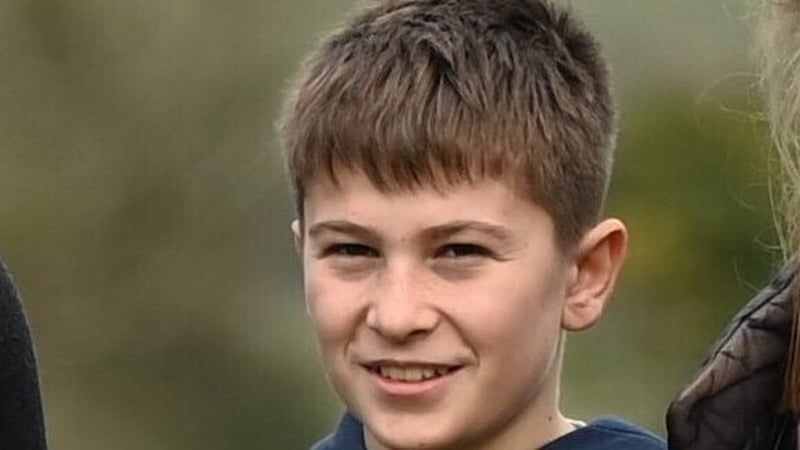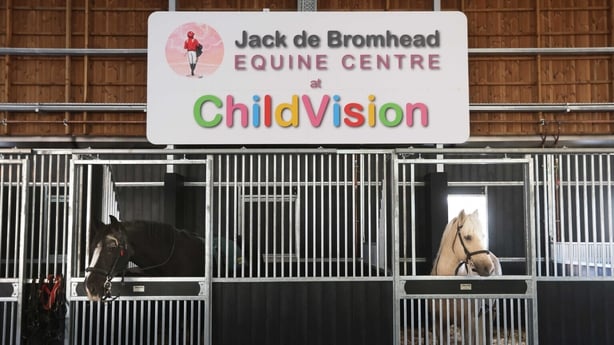Breaking News
Most Scottish colleges not sustainable, says report

Read more on post.
Douglas FraserScotland business/economy editor
 Getty Images
Getty ImagesMost Scottish colleges face unsustainable losses over the next three years – and several are warning they could run out of cash by the end of this financial year, according to a new report.
The Scottish Funding Council (SFC) study, which has had access to accounts and forecasts, shows a further education sector in crisis, with 22 out of 24 colleges expected to spend more than their income this year.
“These deficits show that most colleges are not sustainable,” it says.
Meanwhile, a separate report into Scotland’s universities says they have become over-reliant on income from foreign students and they are at risk if numbers drop.
The SFC monitors and assesses the financial health of Scotland’s further education colleges and universities.
It also distributes funds for Scottish students on behalf of the Scottish government.
Colleges remain highly dependent on the SFC grant, which accounts for more than three-quarters (77%) of their income.
This contrasts with the university sector, which was only reliant on SFC grants for 24% of its income last year, and that number is reducing.
The report says the grant from the funding council has remained relatively flat whereas other costs have soared, such as annual pay awards for staff and rising employer National Insurance contributions and pensions.
Staff costs represent the largest expense for colleges at just under 70% of total costs so this the area they focus on as they urgently try to balance their budgets.
The SFC says further cuts will have a profound impact on the college curriculum, the quality of courses, staff numbers, student numbers, morale and local communities.
An increasing number of colleges have reported that continued savings of that scale will not be achievable, it says.
Most colleges spending more than they earn
According to the funding council report, 17 of Scotland’s 24 FE colleges were in deficit last year, meaning they spend more than they earn.
The forecast for this financial year expects that number to increase to 22.
Twenty of the colleges are still expected to be in deficit in three years’ time.
Another important indicator of a college’s short-term viability is the amount of cash they have in their accounts.
Last year and the year before, the sector as a whole had a cash surplus of £130m.
That is forecast to fall to £35m at the end of this year, and then to go negative by £46m by 2028.
The report says “this reflects colleges’ weak operating position, and there is an imminent risk of several colleges becoming insolvent” by the end of this financial year.
Four colleges expect to have negative cash balances by next April, rising to 12 of them by April 2027.
 Getty Images
Getty ImagesThe report offers limited information about the colleges facing the most financial difficulties.
It reports on published accounts up to 2023-24, which indicate that several of the biggest operating deficits, adjusted for exceptional costs, were in colleges that form the University of the Highlands and Islands.
Perth had an operating deficit of £1.8m, Shetland College was at £1.5m and Moray College was above £1m, with Orkney not far behind.
The Scottish Funding Council says colleges are responding to the pressures with restructuring plans, but have to find money for voluntary redundancies from their own, limited resources.
It says they are cutting teaching time and increasing class sizes, as well as cutting courses with low demand and trying to win more training income from employers.
It says that, on current forecasts, 667 full-time jobs, or their part-time equivalent, will have been cut over four years from 2024, which is one in 15 college staff.
What do Scotland’s colleges say?
Gavin Donoghue, the chief executive of Colleges Scotland, said they had been warning about the chronic underfunding of colleges for years but this report made especially grim reading.
“Colleges have already had investment in them reduced by 17% in real terms since 21/22,” he said.
“They’ve taken difficult and often unpalatable decisions to reduce their staff headcount and reduce the amount of students that they teach and are now looking at decisions like closure of campuses and courses.
“There is no single silver bullet that an individual college can take, its clearly a systemic problem that requires sustainable Scottish government funding.”
Universities ‘over-reliant on foreign students’
Meanwhile, a separate SFC report on Scottish universities said they were over-reliant on foreign students as a source of income.
It said universities get more money from teaching overseas students than they do in funding for Scottish students but there is an increasing risk that they may not be able to maintain the numbers who come from abroad.
The report says competition from other countries, UK visa and immigration policy and geopolitical changes could easily impact their ability to attract foreign students.
The SFC report on universities also says:
- Eleven of Scotland’s 18 universities are expecting to spend more more than they earn this year
- This is expected to lead to a total deficit of £12.9m this year
- The deficit is mainly due to low growth in tuition fees, reduced other income and increased staff costs due to pay inflation.
- The forecast for 2026 shows universities returning to surplus and just seven running a deficit
- However, improvement is mainly driven by three universities, and due to more optimistic forecasts for tuition fees and research income – offset by smaller increases in staff costs
The SFC report says international tuition fee income is now essential for universities to remain financially sustainable and it supports other areas such as research which is often loss-making.
However, the report warns that foreign income is an area of significant fluctuation and risk, especially when it is heavily weighted to a single country.
China remains the country with the most foreign students in Scotland, followed by India, the United States, Nigeria and Pakistan.
Nigeria saw a massive rise in student numbers post-Covid but has since dropped back.
 Getty Images
Getty ImagesEarlier this year, a report into the financial crisis at Dundee University said it had continued with increased spending despite a large drop in foreign student fee income.
The university needed a £40m government bailout after it almost collapsed financially.
The SFC report excluded Dundee because it has not yet finalised its accounts.
It is an extreme example but other Scottish universities are also under financial strain.
Edinburgh University’s principal has called for a “radical re-wiring” to respond to the funding challenge.
On Thursday, Glasgow University principal Anton Muscatelli called for a review of the funding and warned against “stumbling from year to year”.
His statement came as analysis seen by the BBC suggested Scottish government finance for universities and further education colleges has been squeezed in real terms in the past six years by about a fifth, due to the effect of inflation.
The study by David Bell, a professor of economics at Stirling University and expert in public finance, also used publicly available data to show that the fees universities receive for Scottish students fall far short of what they estimate are the costs of educating them.
For instance, in modern languages, the £7,421 annual funding per student is half of what they say is required.
In dentistry, the Scottish government last year paid £19,580 per student.
This is reckoned to be at least £9,000 short of the cost to universities.
Claire McPherson, the director of Universities Scotland, which represents Scotland’s higher education institutions, said the report sets out the “starkest set of financial figures we have ever seen for Scotland’s universities”.
Ms McPherson’s said the report sounds “loud and clear” the financial warnings but there were important things that it does not say.
“It doesn’t mention job losses, which is the painful reality in many institutions,” she said.
“It also doesn’t reference a decade-long decline in public funding as the major contributing factor to the level of financial exposure institutions face and the hard choices they are forced to take.”
She said it was absolutely vital that Scotland makes a move to put its universities on a sustainable financial footing for the long-term.
Breaking News
‘People don’t realise Chicken Shop Date is 10 years old’

Read more on post.
Andrew RogersBBC Newsbeat
She’s built up millions of followers with her awkward, off-the-wall interviews but this time Amelia Dimoldenberg is the one answering the questions.
“I actually don’t mind it,” she says.
“I enjoy interviews because I get to share my story with other people.”
Amelia is speaking to BBC Newsbeat at an event set up to mark 10 years of Chicken Shop Date – the web series that made her one of the UK’s best-known content creators.
It’s a story that started at the Stowe Centre youth club in north-west London, where Amelia interviewed grime artists for a column in magazine The Cut.
She eventually began to film the conversations, framing each one as a “date” and uploading it to YouTube.
The success of Chicken Shop Date has taken her around the world and made her a celebrity in her own right.
But it didn’t happen overnight.
“So many people I feel like don’t understand the history of the show, the journey it’s been on,” says Amelia.
“Some people think it’s been, like, two years.”
The rise of Chicken Shop Date reflects “the journey of digital media and how that landscape has completely changed”.
“When I started the show content creators weren’t at the height they are now,” she says.
“I spent so much time trying to persuade publicists, managers and talent to come on the show.”
In 2014, Amelia suggests, social media wasn’t seen as the best place to promote a celebrity’s latest album, film or product.
“Now, 10 years later, it’s completely the opposite and I’m batting people away,” she says.
The 31-year-old believes Chicken Shop Date, and similar YouTube shows such as Hot Ones have leapfrogged more traditional chat shows to the top of many celebrity agents’ lists when their client has something to promote.
While traditional TV viewing figures have been trending downwards, the reach of online personalities has only increased.
Alongside YouTube, TikTok gives content creators a place to share their best clips, drawing in more viewers.
 Dimz Inc
Dimz IncDespite them increasingly shaping many people’s viewing habits, opinions and purchases, “content creator” is not always regarded as a “real job”.
That’s despite them contributing £2.2bn to the UK economy, according to a recent report.
“Obviously YouTube has been going on for 20 years, that is still a relatively new sector in terms of content creators,” Amelia admits.
But, she says: “It should be easy for you to get a mortgage – it’s a legitimate career.”
Amelia was one of the high-profile YouTubers who put their names to a report produced by the video site earlier this year which called for greater recognition from the government.
“Taking people who work in digital media seriously is something I’m really passionate about,” she says.
“We’re storytellers like directors, like scriptwriters. We’ve been doing everything ourselves from the very beginning so I’m advocating for us.”
This week the UK government established an all-party parliamentary group (APPG) aimed at representing UK creators and influencers and building links with politicians.
Amelia says it’s a sign that things are heading in the right direction, but believes there’s more work to be done.
 Dimz Inc
Dimz IncThe MP in charge of the new group called content creators such as Amelia “trailblazers of a new creative revolution”.
“I do feel like a bit of a trailblazer in the sense that there wasn’t a blueprint but now there is,” says Amelia.
Earlier this year she launched a summer course to train up the “next set of young creators”, equipping them with some of the things she’s learned since the start of her career.
“It’s great to have an idea and put it on YouTube,” she says.
“But you also need to have the right team around you to make sure it’s not a flash in the pan and you can grow it in a sustainable way.”
Amelia says “doing everything on your own terms” as a creator is “fantastic”, but after a certain point “you need a team to actually continue at the same level”.
Most fans of content creators know that it is, in fact, a lot of work.
The rewards for those who make it big can be huge, but there are many aspiring influencers whose careers never take off.
And even for those who do manage to become established, it can take a toll on their mental health.
A 2022 UK government report identified an influencer pay gap on the basis of gender, race and disability.
Amelia tells Newsbeat she wants to use her “privileged position” to give people from less well-represented backgrounds access to the resources to start careers as creators.
For anyone who wants to follow in Amelia’s footsteps, and maybe end up interviewing musicians, actors and comedians one day, she has some advice.
“Do your research, always, number one,” she says.
“Do as much as you can so you don’t go blank when you’re sat opposite someone.
“But saying that, I still do that sometimes.
“It’s very hard to listen to someone and think of your next question at the same time.”
And as for dating advice?
“It’s all about sense of humour,” she says.
“If you don’t connect on a sense of humour level it’s not even worth going there.
“If they can’t make you laugh or they don’t laugh at your jokes it’s not worth it.”

Breaking News
IOPC staff comments on Calocane inquiry ‘inhumane’

Read more on post.
Callum May and
Liam Barnes, East Midlands
 Supplied
SuppliedPolice watchdog staff who described an inquiry into the 2023 Nottingham attacks killer as “politically motivated” are “disrespectful and inhumane”, the mother of one of his victims said.
In March, the Independent Office for Police Conduct (IOPC) reopened its investigation into Leicestershire Police officers following new evidence about Valdo Calocane assaulting two people in May 2023, weeks before he killed Ian Coates, Grace O’Malley-Kumar and Barnaby Webber.
A report in The Times said IOPC investigators told officers they would “get off with words of advice or reflective practice” – the lowest form of sanction – and that their disciplinary case was “being driven by the families of the victims”.
Emma Webber, mother of Barnaby, told Radio 4’s Today programme she was “not terribly surprised given our interactions with the IOPC”, adding the allegations puts the watchdog “into disarray”.
The police watchdog has removed some staff from investigating the case of the Calocane after they allegedly gave officers details of their investigation.
“It’s hard to have any reaction other than just pure horror,” added Mrs Webber.
“It’s indicative of the whole sorry, terrible, tragic mess, and the car crash of our institutions that has led to us having a statutory public inquiry.”
Calocane, who has paranoid schizophrenia, fatally stabbed Ian Coates, Barnaby Webber and Grace O’Malley-Kumar on 13 June 2023, and was sentenced to a hospital order in January 2024.
The IOPC said it had commissioned an independent external review, with sources claiming the staff accused of making the comments were not the decision-makers about the case or about disciplinary action.
An IOPC spokesperson said: “We are aware of allegations made about IOPC staff by Leicestershire Police officers who are subjects of an IOPC investigation.
“The allegations involved comments alleged to have been made about that investigation.
“We are treating this matter extremely seriously and have commissioned an external party to investigate them alongside other complaints about the investigation made by the families of the victims.
“We will continue to provide the families with regular updates as these matters progress.”
Breaking News
Equine centre in memory of Jack de Bromhead to open

Read more on post.
A new equine centre in memory of the young jockey Jack de Bromhead will be opened in north Dublin later day.
13-year-old Jack, the son of racehorse trainer Henry de Bromhead, died in a pony-racing accident in Co Waterford in September 2022.
The Jack de Bromhead Equine Centre will be opened by Henry and Heather de Bromhead, along with their daughters Mia and Georgia on the ChildVision Campus in Drumcondra this afternoon.
The new indoor facility, which took 17 months to complete, will give children with visual impairments and additional disabilities access to the best global equine activities in a supportive and purpose designed environment.

The de Bromhead family said in a statement: “The equine centre at ChildVision is a wonderful legacy for our beloved Jack, a hugely missed son and brother.
“Horses are a huge part of our lives, and we know the physical experience of riding a horse offers so many potential benefits, especially helping address a host of physical, social and emotional issues.
“More so, the Jack de Bromhead Equine Centre will be a place of learning and hope, full of laughter and joy, traits that were such a part of Jack, all facilitated by the much-treasured horses and ponies that call the ChildVision stables home.
“We are delighted to have been part of this journey and today to see this vision become a reality with the opening of the centre.”
-
Politics3 days ago
European Parliament snubs Orbán with vote to shield Italian MEP from Hungarian arrest
-
Health4 days ago
EU renews support for WHO’s Universal Health Coverage Partnership
-
Culture3 weeks ago
Life, loss, fame & family – the IFI Documentary Festival in focus
-
Environment6 days ago
Key oceans treaty crosses threshold to come into force
-
Culture3 days ago
Twilight at 20: the many afterlives of Stephenie Meyer’s vampires
-
Culture1 week ago
Farewell, Sundance – how Robert Redford changed cinema forever
-
Culture2 months ago
Fatal, flashy and indecent – the movies of Adrian Lyne revisited
-
Culture3 weeks ago
What is KPop Demon Hunters, and why is everyone talking about it?












































